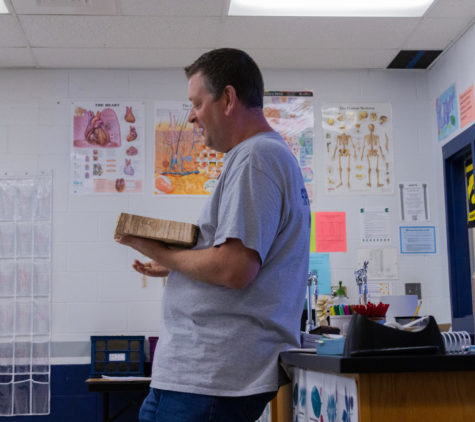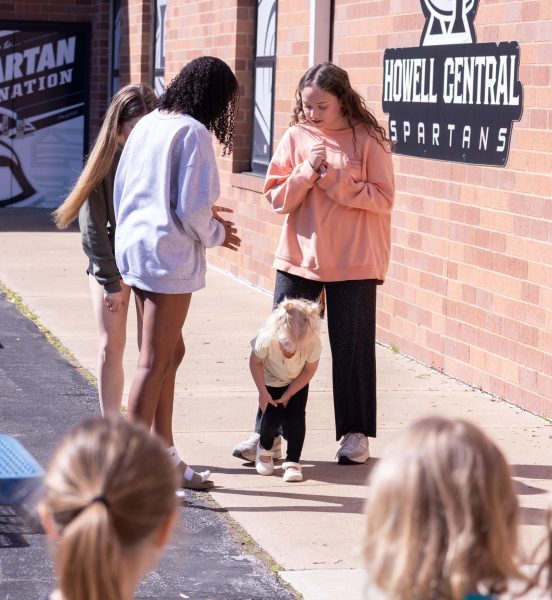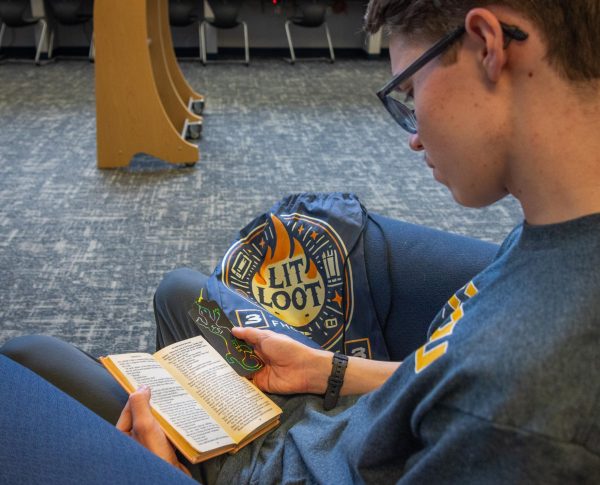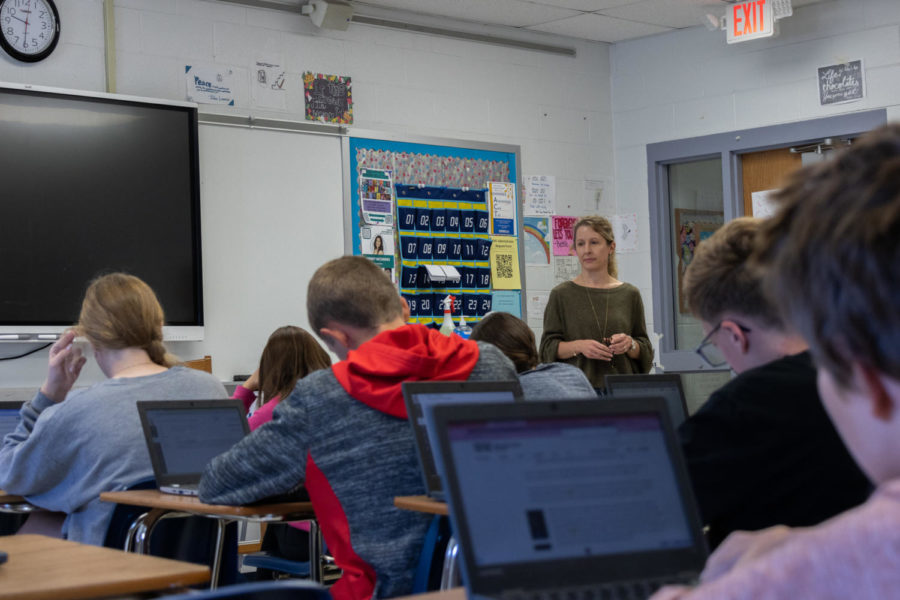Seeing the Difference
Teachers share the differences they see about freshmen and senior classes
Mrs. Kathryn Mastarokas is focused as she teaches her Pre-AP Eniglish I class. Her supportive teaching style doesn’t just help in the classroom but it also helps freshmen adjust to the high school environment.
Freshmen and seniors are very different classes. Many people assume that they know what to expect but whether it’s common misconceptions or stereotypes, there is a lot to get wrong when profiling an entire grade. Let’s peel back the curtain of mystery as teachers who specialize in teaching one grade over another share what they have learned to bridge the gap between grade levels, and show why this divide isn’t all that it seems.
There are many positives to teaching a freshman-heavy class. Life Sciences teacher Jessica Rowe talks about her favorite things with the freshmen class.
“Freshmen have so much potential and they come in with such a sense of wonder. Like wondering what high school will be like. I wonder what I will get to do. I wonder who I will meet and what I will learn,” Mrs. Rowe said.
Mrs. Rowe, who teaches Pre-AP biology and Medical Interventions, talked in depth about how people tend to underestimate freshmen’s abilities. Many think that they are incapable of overcoming the fast-paced high school environment. The science department is known to limit labs.
“It’s wrong to assume that because they’re freshmen, they don’t know how to be responsible or critically think or ask great questions, ‘’ Mrs. Rowe said.
Freshmen are not the stumbling baby deer they are stereotyped to be, a freshman level classroom is far from herding cats. They often just require extra help with adjusting to the high school environment. English teacher Kathryn Mastarokas speaks about this extra guidance.
“Freshmen across the board, definitely need a lot more guidance in terms of, how to be organized and keep track of everything and just all that basic, how do you do high school kinds of things,” Mrs. Mastarokas said.
While freshmen may require extra work, seniors are no walk in the parke either. Mrs Mastarokas may love her senior classes but senioritis is rampant no matter what a teacher does.
“[Seniors] are more, much more chill, sometimes too chill. They’re getting lazy because they’re seniors. Senioritis is real,” Mrs. Mastarokas said.

Mr. Patrick Reed, Zoology and Botany and Human Anatomy and Physiology teacher, feels right at home with his senior classes.
“Seniors are my comfort zone,” Mr. Reed said. “I walk into my ZoBot. or HAP classes and feel right at home. I feel like seniors know what they need and I can be more sarcastic with them. Like they are ready to receive all of my wisdom.”
Freshmen with their newness and seniors with their lack of motivation, there is no perfect grade level. Freshmen and seniors are just in different parts of their journey. Seniors are ready to move on from high school while the freshmen are just beginning. Mr. Reed has the perfect analogy for describing these grade levels.
“I think freshmen are caterpillars. They come in and they’re just crunching munching. They’re eating and they can be sloppy. They can be like this barge all the way around the plant eating everything all the time. By the time you guys are seniors, you are butterflies. You come out senior year and it’s like, I’m ready to fly. Like let’s go,” Mr. Reed said.
The differences, though they are stark in contrast with one another, make sense once you just view highschool as a circle of life. Every student was once a caterpillar and will all eventually become a butterfly. Teachers just do what they can to lead and help their students along on this journey.
“So many of the juniors and seniors [I have] are people that I’ve watched grow over the last three to four years. And that’s so rewarding, and exciting. Seeing them when they come into high school and then again as they’re leaving in high school and heading off to college and finding out what they’re going to do next is really why I [teach],” Mrs. Rowe said.
Your donation will support the student journalists of Francis Howell Central High School. Your contribution will allow us to purchase equipment and cover our annual website hosting costs. FHCToday.com and our subsequent publications are dedicated to the students by the students. We hope you consider donating to allow us to continue our mission of a connected and well-informed student body.






